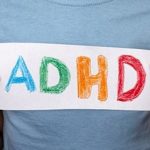
Folks can lose weight even if they pack all their weekly exercise into one or two days, a new study finds. Guidelines recommend that people get at least 150 minutes a week of moderate physical activity or 75 minutes a week of vigorous exercise. “Weekend warriors” who condense all that exercise into one or two days each week can lose about the same amount of weight as people who perform shorter sessions across more days, researchers report Feb. 20 in the journal Obesity. That’s good news for people who find it hard to fit physical activity into their daily lives, researchers said. “The weekend warrior pattern is worth promoting in individuals who cannot meet the recommended frequency in current guidelines,” said study author Lihua Zhang, a health care researcher at Fuwai Hospital’s National Center for Cardiovascular Diseases in Beijing. Zhang noted that office employees, bus drivers and other workers who have to sit for most of the workday could benefit from such an approach to exercise. “Those people are struggling to catch up in their exercise plan in daily life to offset the hazard of a sedentary lifestyle but have less free time to get to the gym,” Zhang said in a journal news release. “Our study could offer them an alternative choice to keep fit.” For the study, researchers analyzed data on more than… read on > read on >


































-300x200.jpg)



